

SPECIALIZATIONS
Click to expand
Travel and Tours
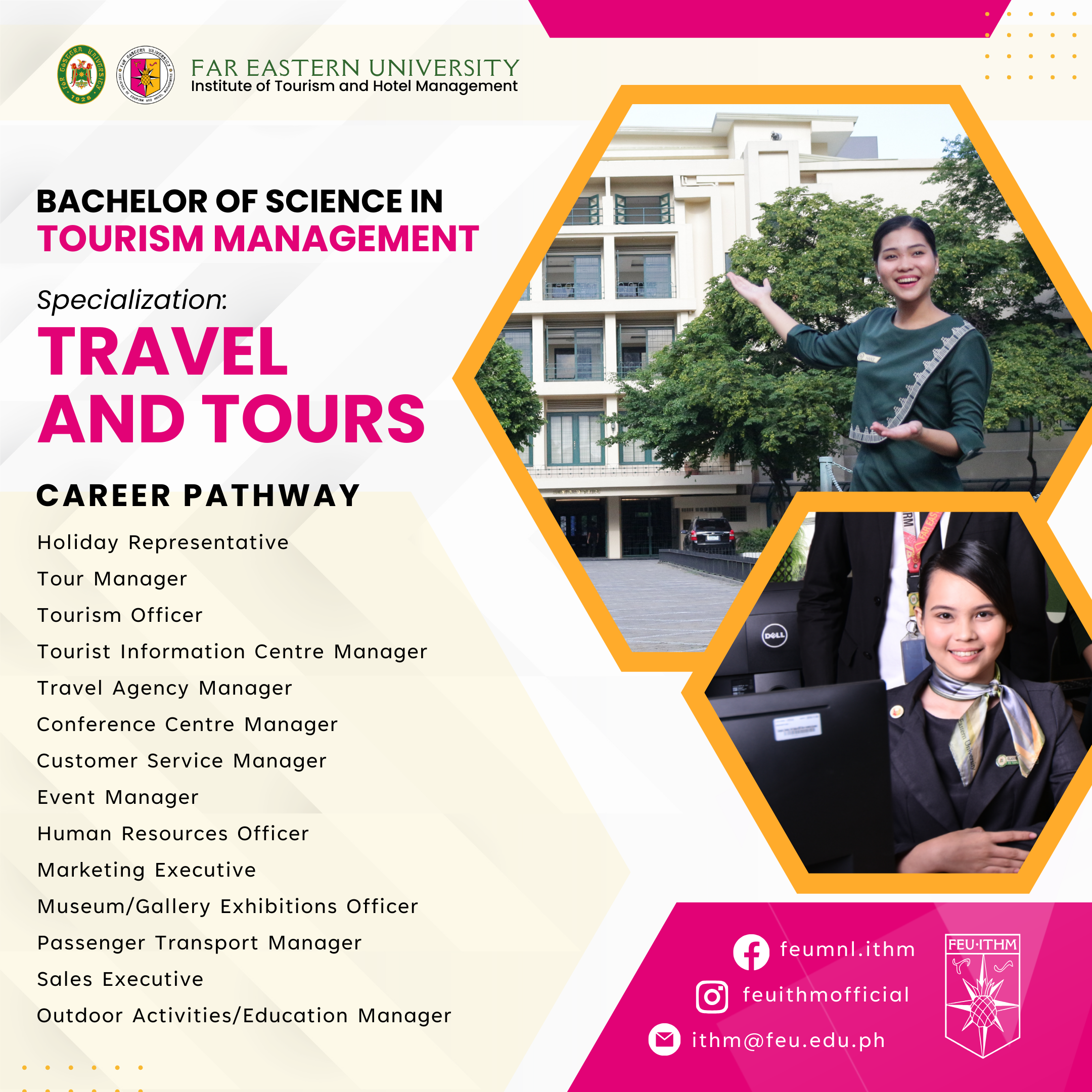
Students will receive the following certificates upon completion of three courses, each consisting of three units, to recognize their specialization:
- Certificate in Leisure Management
- Certificate in Special Interest Tourism Operations
Description:
The Travel and Tours Management specialization evolves in the intricacies of travel operations and tour management. Students explore the fundamentals of planning, organizing, and executing travel experiences for individuals and groups. They will learn about popular destinations, cultural considerations, transportation coordination, and accommodation arrangements. Key topics include itinerary design, tour costing, risk management, and customer service strategies.
Students will receive certificates upon completion of three courses, each course consisting of three units, for specialization recognition.
Airline Operations and Management
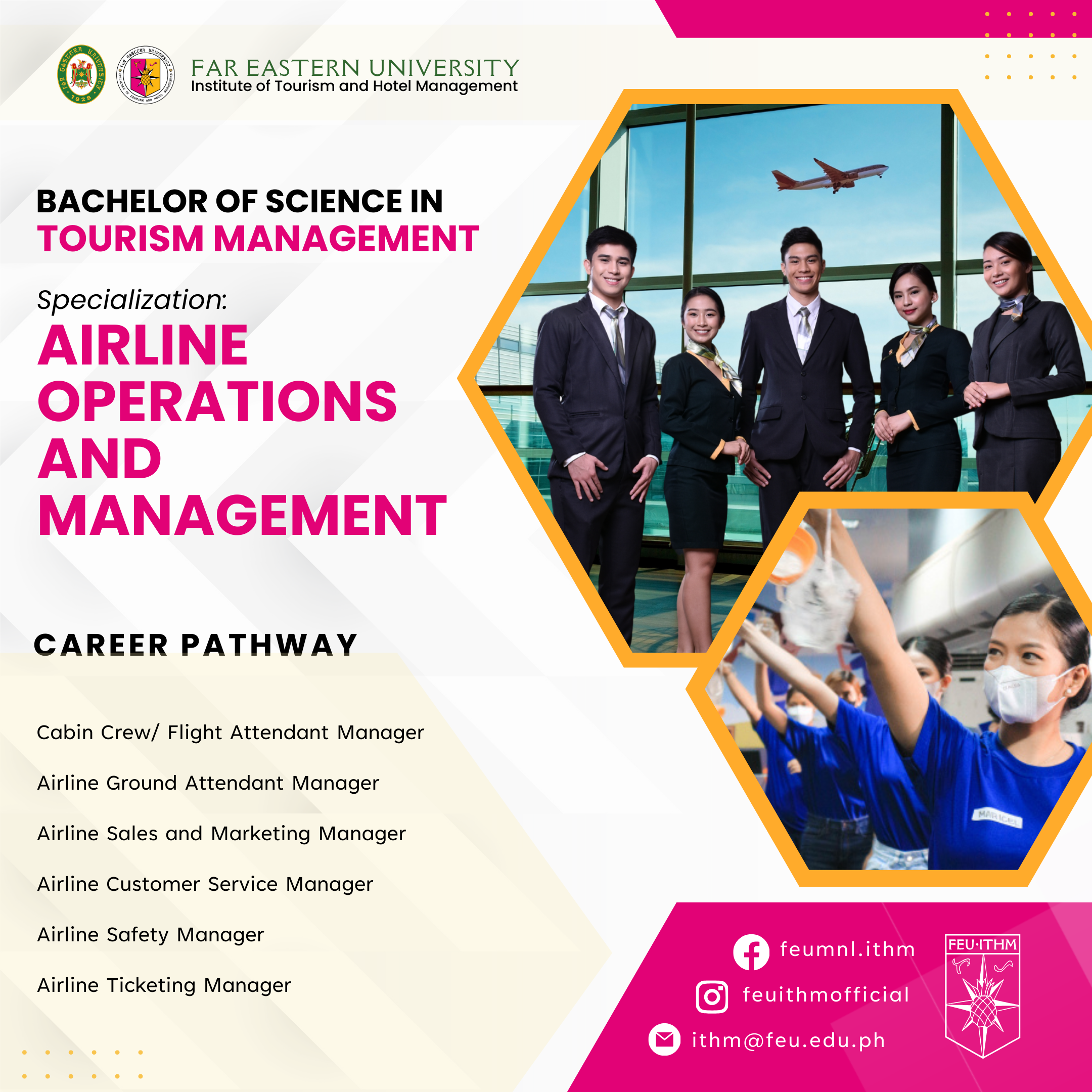
Students will receive the following certificates upon completion of three courses, each consisting of three units, to recognize their specialization:
- Certificate in Flight Attendant and Cabin Services
- Certificate in Airline Operation Services
Description:
The Airline Management specialization focuses on the unique challenges and dynamics of the airline industry. The students will gain insights on airline operations, in-flight operations, ground operations, pricing and ticketing strategies, and regulatory compliance. They explore concepts such as revenue management, aircraft familiarization, customer experience enhancement, and crisis management in the context of aviation.
Tourism Foreign Relations and Diplomacy
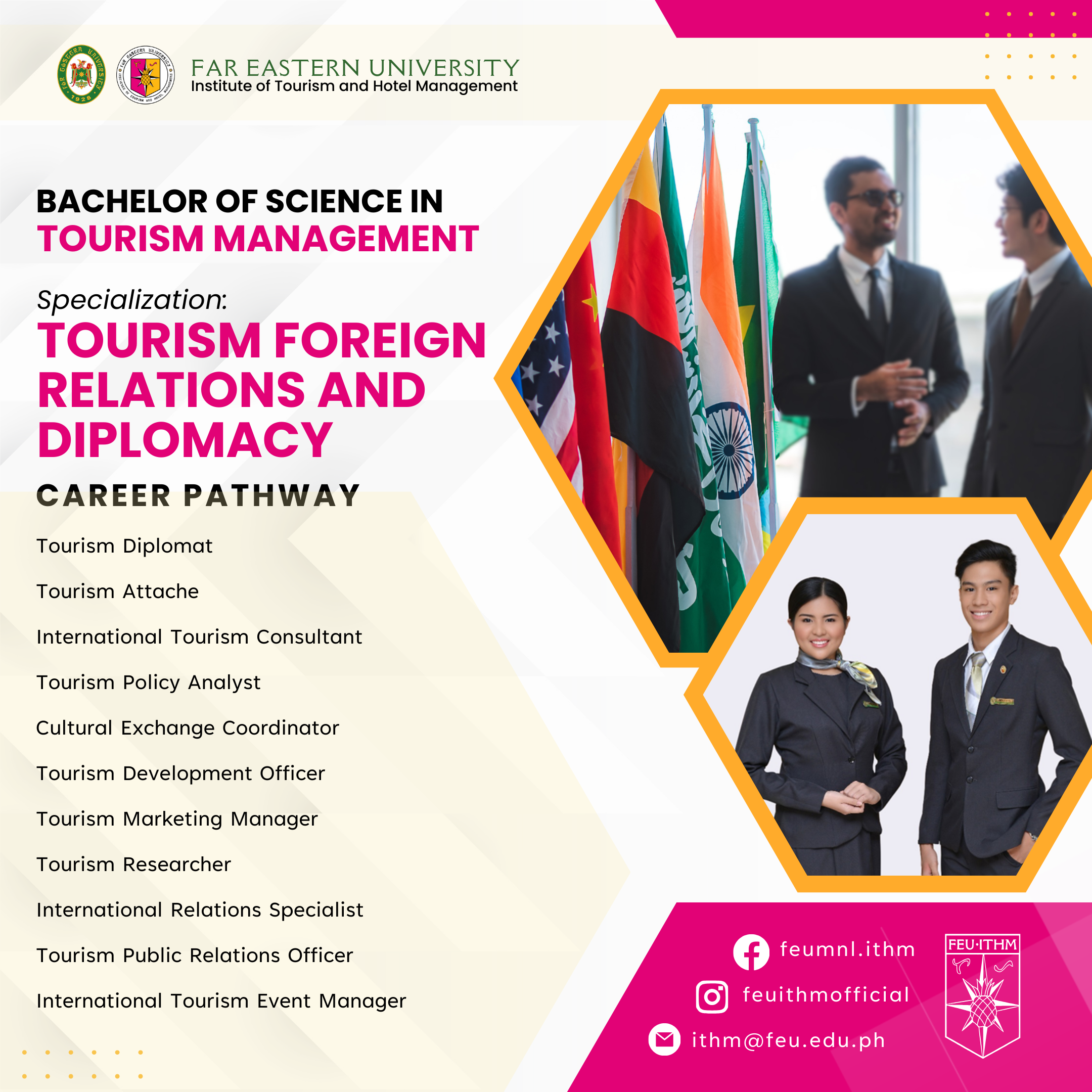
Students will receive the following certificates upon completion of three courses, each consisting of three units, to recognize their specialization:
- Certificate in Global and International Tourism Relations
- Certificate in Tourism Leadership and Governance
Description:
This specialization prepares students to learn the intersection of tourism with international relations and diplomacy. It examines the role of governments, international organizations, and non-governmental entities in shaping tourism policies and practices. Students explore concepts such as destination branding, cultural diplomacy, sustainable tourism development, and crisis communication in multicultural contexts. They also study the impact of geopolitical factors on tourism flows and intercultural communication strategies.
Tourism Digital Content Creation and Marketing
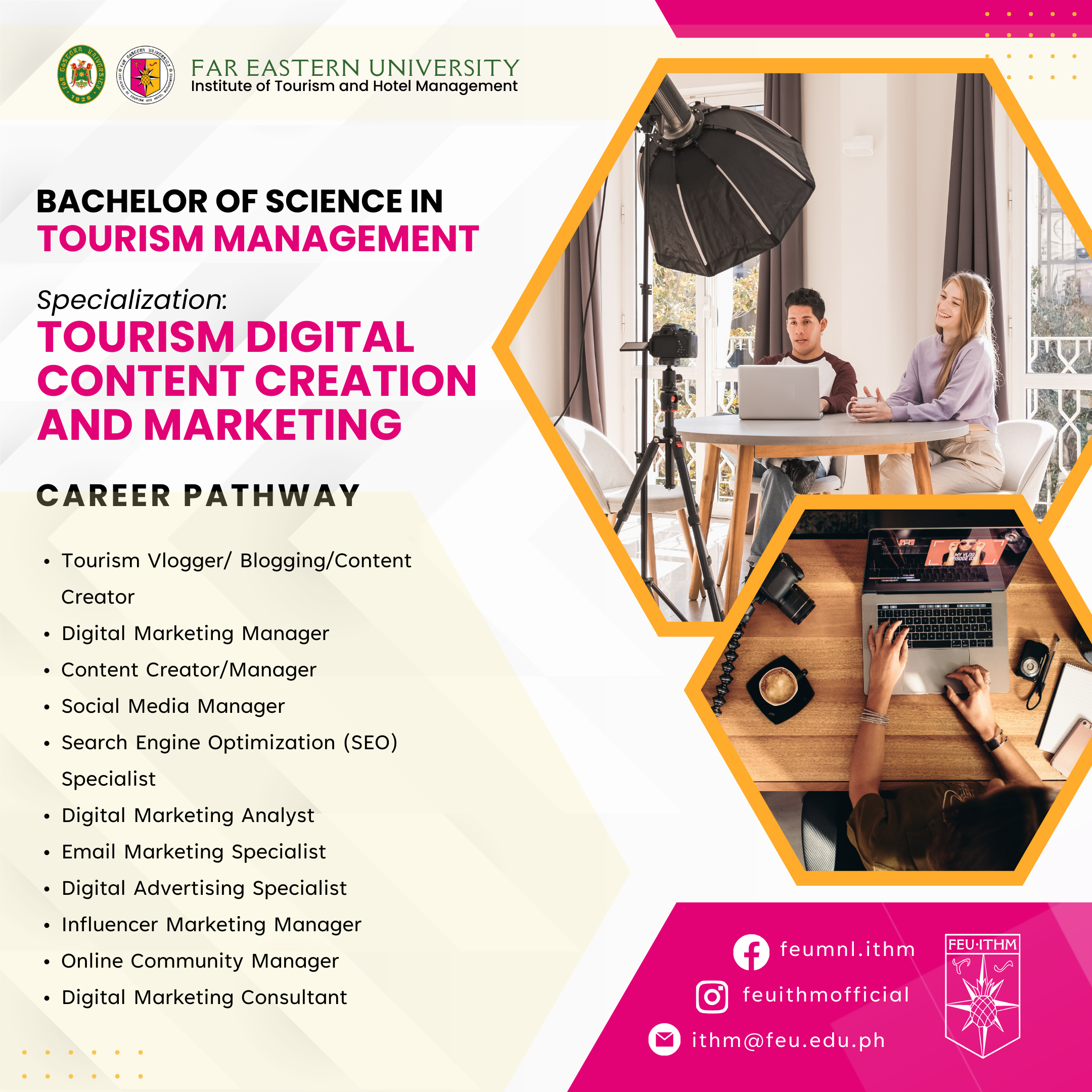
Students will receive the following certificates upon completion of three courses, each consisting of three units, to recognize their specialization:
- Certificate in Tourism Marketing Content Production
- Certificate in Tourism Marketing Communication
Description:
In this specialization, students learn to professionalize digital content creation and leverage digital technologies and platforms to create compelling content and execute effective marketing campaigns within the tourism industry. They develop skills in content creation, social media management, search engine optimization, website development, and digital advertising. Emphasis is placed on understanding consumer behavior, leveraging data analytics, and adapting to evolving digital trends to promote destinations, attractions, and tourism services effectively.
Tourism and Hospitality Sustainability Leadership
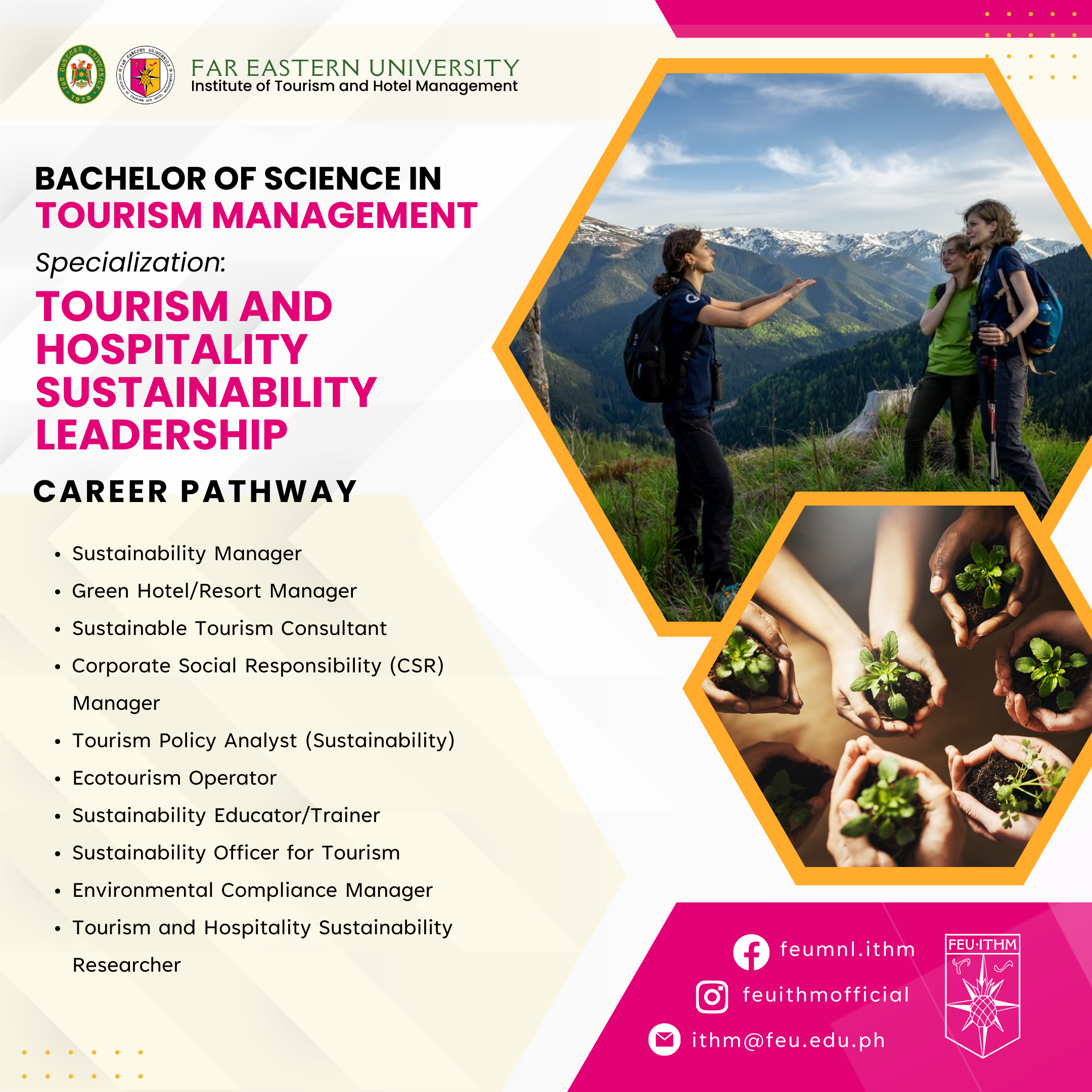
Students will receive the following certificates upon completion of three courses, each consisting of three units, to recognize their specialization:
- Certificate in Sustainable Tourism Management
- Certificate in Hospitality Sustainability Operations
Description:
The Tourism and Hospitality Sustainability Leadership specialization focuses on fostering environmentally and socially responsible practices within the tourism and hospitality sectors. Students explore concepts of sustainable development, resource management, community engagement, and ethical business practices. They learn to integrate sustainability principles into strategic decision-making processes, operations management, and stakeholder relations. Topics include green hospitality, corporate social responsibility, and destination stewardship. Graduates are equipped to lead initiatives that balance economic viability with environmental conservation and social equity in tourism and hospitality enterprises.
In 2001, FEU under the Institute of Accounts, Business and Finance or IABF offered the Tourism program to its students. The university provided the opportunity for the students to obtain a degree in Bachelor of Science in Commerce major in Tourism Management. The degree was structured to be a hybrid program offering a combination of hospitality and tourism courses, aiming to produce graduates who can work well in any division of the tourism industry.
By 2007, the BSC Tourism Management student population has steadily grown, with almost a thousand students in all year levels. In 2010, the BSC Tourism Management program was replaced with BS Tourism Management which gained government recognition under CHED memorandum order (CMO) no. 30. The Institute of Tourism and Hotel Management (ITHM) was then formed in 2011 to manage the BS Tourism Management and BS Hotel and Restaurant Management programs.
The current Bachelor of Science in Tourism Management (BSTM) program is a four-year degree program with two tracks, namely Event Management and Travel and Tours Management. It prepares students for management positions in some of the largest and fastest-growing economic sectors worldwide in the tourism industry.
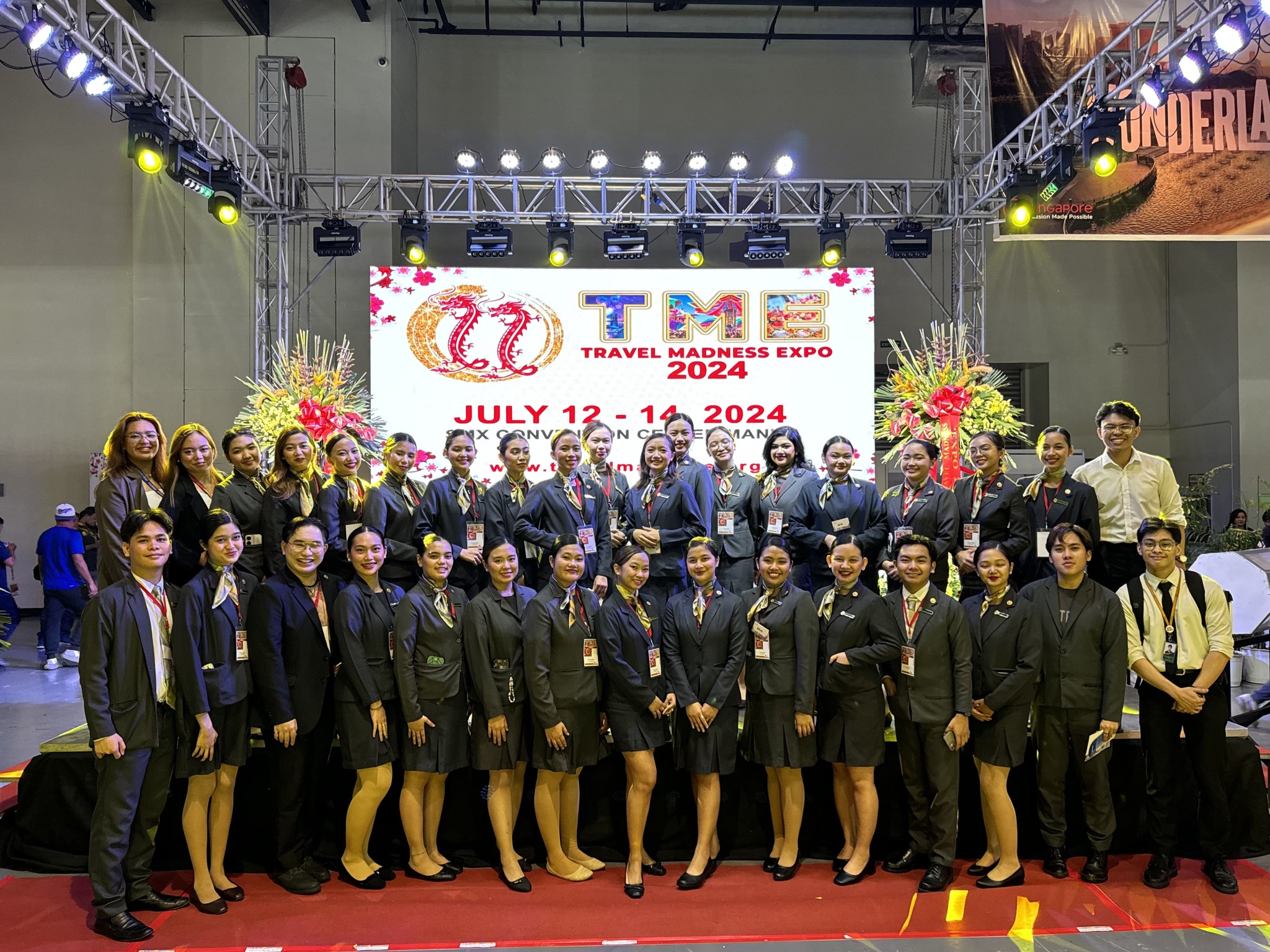
In this program, students acquire essential industry knowledge and leadership skills in hospitality finance and development, marketing and revenue management, conference and special event planning, tourism destination policy and promotion, and food and beverage operations, both in and out of the classroom. They gain hands-on experience through internships and events while building a valuable portfolio of professional experience and an extensive network within the industry even before they graduate, ahead of their peers. With creativity and entrepreneurship as their leverage, students are prepared to push the boundaries of this growing global industry.
BSTM graduates belong to Level VI (Baccalaureate) of the Philippine Qualifications Framework (under qualification code number 61015) and are also recognized under the ASEAN Qualifications Reference Framework.
Additionally, the BSTM program has achieved Level I formal accreditation status under the Philippine Association of Colleges and Universities Commission on Accreditation (PACUCOA) since November 2016.
The program welcomes all interested students from any senior high school track provided they reach the required minimum score in the FEU College Admission Test (FEUCAT). All incoming first year students must adhere to the University’s admission requirements as prescribed by the Admission and Financial Assistance Office.